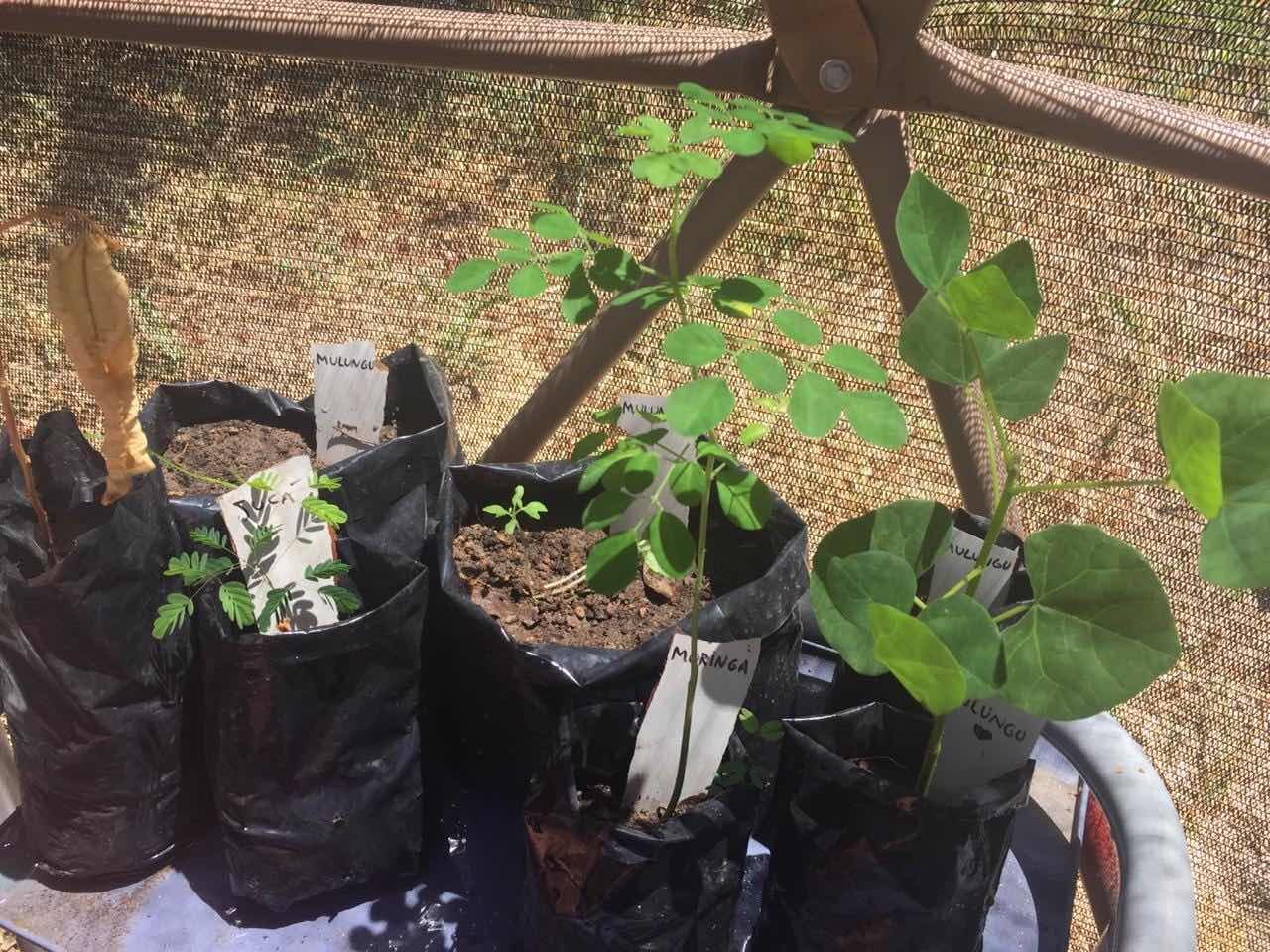
STORIES
News from RAIN.
World Soil Day 2020 - 4p1000
RAIN has recently connected with the “4 PER 1000 initiative”. The aim of the initiative is to demonstrate that agriculture, and in particular agricultural soils can play a crucial role where food security and climate change are concerned. It acknowledges that an annual growth rate of 0.4% in the soil carbon stocks, or 4% per year, in the 30-40 cm top layer of soil, would significantly reduce the CO2 concentration in the atmosphere related to human activities.
Rede pela Transição - An announcement from partners in the Brazilian northeast
Our friends have launched a platform detailing regenerative work and food security with poor urban communities.
In their words…
We would like to present the Rede pela Transição platform, which supports learning journeys focused on ecological education.
Growing with Pioneers: Seeds in the soil
The RAIN Pioneers Project encourages schools and communities to plant and maintain their own reforestation, rewilding or ecosystem restoration project.
#RewildingEducation - Launching the Pioneers monthly newsletter
How do we equip our children to face the world they are growing up in? RAIN launches Pioneers Monthly.
When a water spring is restored
Wender is an agricultural engineer turned environmental activist, working with RAIN on the frontline in the Valley of Jequitinonha in the state of Minas Gerais (he is in the foreground of the image above). He and his team have been protecting and reforesting the springs around his hometown of Cachoeira to improve the streams systems and ecosystems.
Agroecology in Urban Communities
When Brazil announced its lockdown, our partners in Recife refused to let Covid-19 stop them making a positive impact.
They went online as Rede Pela Transição, providing popular education on sustainable activities and empowering people to protect their food security and health.
Reforesting with the Kaingang indigenous nation
The project proposed is to build two large nurseries, employing four full-time workers and producing around 100,000 trees each per year.
Many of these trees will be given to other tribes and communities, with the intention that they too will begin to regenerate their lands and recover ancestral modes of living in harmony with the earth.
The first two nurseries can be built and staffed for £3000 each, clearing the way for more projects in the future.
Ready to regenerate streams
Our partner Wender, an ecological engineer in Jequitinonha, has been visiting local schools in order to raise awareness about the importance of river restoration.
The kids who get their hands dirty studying ecology in these schools become ambassadors with their family members…
Education and Agroecology in the Brazilian northeast
Bringing together culture, community and ecological education, RAIN’s collaboration with Pe da Vida in the Northeast of Brazil weaves together indigenous knowledge and scientific awareness surrounding sustainable agriculture. This education initiative aims to revive traditional approaches to farming by inspiring urban students to draw connections between their land, water, resources and food.
“They’re all having summits, why don’t we?”
The Lewes Tree Summit brings together experts and enthusiasts to carefully look at the woods and the trees.
A green-fingered and well-rooted collective of over 100 people put their heads together to think and talk about the future of forestry in the region.
It was the first of its kind, and by the end of the day it had enthusiastically been recast as an annual event
- so not just sustainable but renewable.
Indigenous nation asking for help to reforest
The Terena culture used to occupy tens of thousands of hectares, most was taken from them and degraded.
The River Buriti, that feeds 13 separate aldeias (indigenous villages) in the Buriti indigenous reserve, has suffered terribly, and the water volume is dropping year by year as a result.
It is now the thin green line you can see in the top right of the reserve on the map.
We are looking for 13 schools in the Brighton area to twin with 13 schools in the reserve - details of the school scheme here.
Equipado para ensinar agroecologia
Música clássica em Oxford fornece ferramentas para agricultores que estão mudando para a agricultura regenerativa
Em maio de 2017, quando os agroecologistas Daniel e Carol começaram a cultivar alimentos em um pasto degradado, o vizinho Zé achou que eles eram loucos.
Tooled up to teach agroforestry
Classical music in Oxford provides tools for farmers switching to regenerative agriculture by holding a fundraiser.
Supporting agro-ecologists Daniel and Carol, who started cultivating food on a degraded pasture, despite their neighbour Zé thinking they were crazy.
As land degraded by cattle farming is virtually useless for producing crops - at least, that's the case for conventional farming.
Agroforestry is different, mimicking nature by planting many species together rather than just one species in a monoculture. Each plant adds something to the soil, which helps the land to recover.
A huge pile of manure for St Brendan's!
St Brendan’s in Bristol, one of our Pioneer Schools, worked with local organisations, businesses and The Woodland Trust. Here they are with a special delivery on site.
The Kids are Alright
The students at New Hinksey Primary School heard about RAIN and our work helping students in Brazil to regenerate the Atlantic Forest. They decided to do a "Dress like a Tree" day as a fundraiser for RAIN.
Recife students enjoying their nursery
Pé da Vida is an ecological education organisation at the University of Pernambuco, doing sustainable projects with schools and communities in Recife on the Northeastern coast of Brazil.
Much of the native vegetation (called cerrado) of the region has been lost to soya plantations, so the need for education about sustainable land use is critical.
Planet saving project begins to grow
The project, led by St Brendan’s Geography teacher Sophie Preece and Danny Diskin, founder of the Regenerative Agroforestry Impact Network (RAIN) brings together a group of environmental experts, enthusiasts, land owners and researchers.
Raindrops 1 - Winter Newsletter
RAIN activities began back in February when we sponsored a bus trip to the CAV Agroforestry centre. Farmers learned about regenerative farming techniques, organic pesticides and how to live in harmony with the land, but the most exciting outcome was yet to come.



















